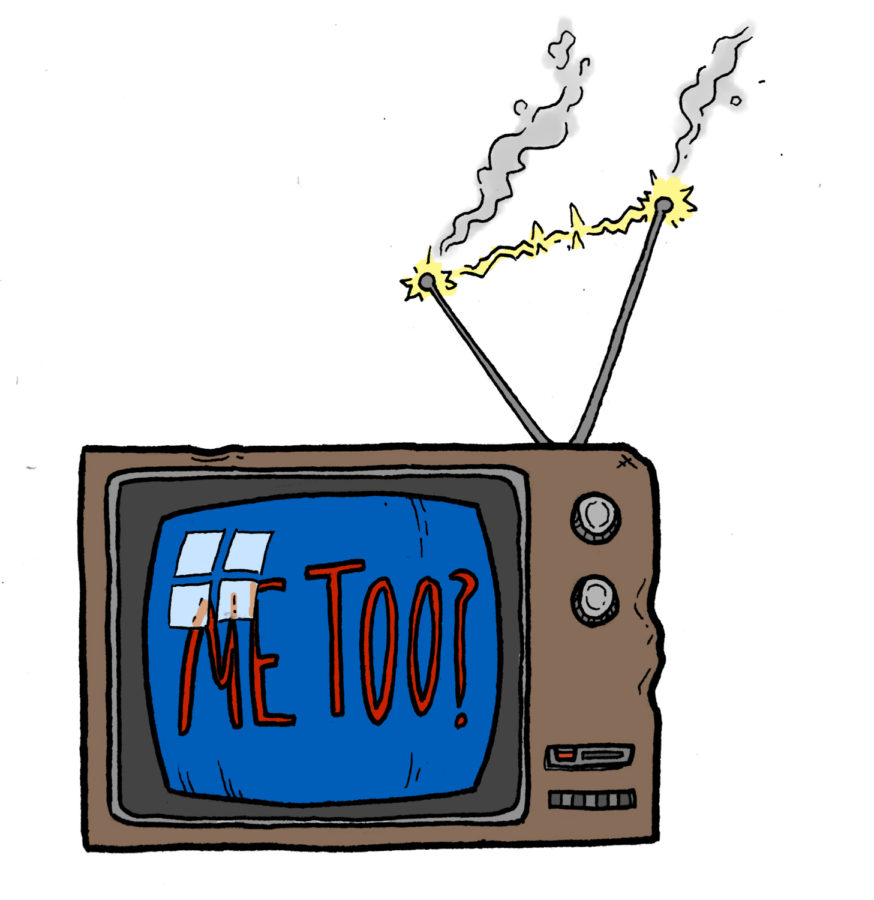Reality TV needs to treat harassment more seriously
September 4, 2018
Reality TV is no stranger to sexual harassment scandals. Between “Bachelor in Paradise,” “Big Brother” and a newly proposed reality show called “The Silence Breaker,” viewers at home are being exposed to a variety of shows’ responses to the #MeToo movement and also to potential sexual harassment on set.
Each of these shows either recently experienced or intends to focus on harassment and misconduct. Between them, the incidents were either never mentioned outside of a one-time statement or were only used in the trailer to add drama. In the case of “The Silence Breaker,” harassment was repurposed into the whole entertainment plot.
Incidents of misconduct or harassment should be presented in a more serious way on all television platforms, since such actions can impact not only the people they happened to but also viewers and how they would respond in similar circumstances.
It can be difficult for the public to understand when an incident is grave or inappropriate when it’s presented in a way that’s dramatic and hyped up. Brad Gorham, a chair of the communication department at Syracuse University, noted that reality shows “help construct scenarios that demonstrate how some behaviors will be rewarded or punished. The concern is that frequent viewers of these shows will learn these behaviors, see them as desirable and then model them in the actual real world.”
There’s a stark difference between profiting off misconduct and sexual harassment and creating a dialogue that expresses when actions are appropriate or not, regardless of whether or not someone will want to complain or confront the harasser. All three shows — some more than others — have missed the opportunity to create a respectful dialogue and inform viewers.
One such opportunity flew by the producers of “Bachelor in Paradise,” a 2017 spin-off of “The Bachelor” and “The Bachelorette,” in which old contestants get to vacation at a remote destination in order to get another chance at love. Two contestants in the show, Corinne Olympios and DeMario Jackson, had a sexual encounter in a pool after drinking and partying throughout the day.
After one of the show’s producers, who heard about the incident second-hand, expressed concern about Olympios’ ability to consent, the show stopped filming in order to conduct an internal investigation. Following the incident both DeMario and Olympios hired attorneys. After the investigation concluded, Olympios released a statement saying she hired an attorney to “understand what happened on June 4” and that she never “filed complaints or accusations against anyone.”
Warner Bros. passed its own internal investigation and also added new procedures to the show, according to a timeline in Vulture. One of the new regulations is that contestants must affirm their consent to producers before engaging in sexual contact.
Even though DeMario and Olympios were not featured in the season, the incident that suspended production was mentioned in the trailer to add drama to promotional ads. Despite added precautions to the show’s guidelines, the producers or other TV show executives should have also taken the opportunity to publicly discuss on the show or in a statement what consent is or explain how consent is not valid when someone is drunk, instead of featuring an interaction where consent was unclear in promotional material.
The show “Big Brother” also faced a sexual harassment and misconduct scandal more recently — and more visibly. One of the contestants, JC Mounduix, was seen on-screen touching a housemate, Tyler Crispen, and kissing his armpit while Crispen was asleep. He also opened the door to the bathroom on contestant Haleigh Broucher while she was using it and refused to close it, prompting Broucher to call for production to intervene. This was not Mounduix’s first time engaging inappropriately with fellow contestants. Earlier in the season, he was seen attempting to touch housemates Kaycee Clark’s, Kaitlyn Herman’s and Crispen’s genitals with an ice cream scooper and his hand.
None of the contestants chose to formally write a complaint to producers or the show. However, according to a statement by executive producer Rich Meehan, the show took viewer concerns about Mounduix’s behavior seriously and said “if there was any indication from [the] Houseguests of sexual misconduct, [the show] and CBS would have taken immediate action.”
While personal autonomy is necessarily present when it comes to reporting an incident, producers or other show executives should have detailed either on the show or on social media that nobody is expected to tolerate any behavior that is not welcome, whether it be in the “Big Brother” house or in the real world. In this case, a lack of action for whatever reason could be seen as producers or castmates alike condoning Mounduix’s actions to younger, more impressionable viewers.
In complete contrast to a lack of proper discussion surrounding misconduct or harassment, the newly proposed reality show “The Silence Breaker” — which was first announced this year by its creator Gil Formats — is a blatant example of using sexual harassment for profit.
The show is designed to follow individuals who have reported experiencing sexual harassment at work. It films each person’s work life with hidden cameras to ultimately catch the perpetrators of unwanted sexual advances and culminate in a confrontation between the harasser and the harassed.
Even though the show has only just announced its pickup by Concept Street, a company that broadcasts to Holland and Belgium, the program seems to profit off harassment without displaying it in a thoughtful or educational way.
The fact that each show is structured in a way that promotes confrontation at the end of each episode is frustrating because it promotes the idea that confrontation, which can often be dangerous or uncomfortable for the harassed, is the only way to deal with and respond to harassment. Both the RAINN website and the Yale Share Center describe coping methods to help friends who are survivors of sexual assault, harassment or misconduct, and both sources mention a variety of safer solutions apart from face-to-face confrontation, such as seeking help from professionals.
A more open, honest dialogue about what to do when faced with sexual harassment could have been created from incidents like those in “Bachelor in Paradise” or “Big Brother” and something more effective could have been made instead of “The Silence Breaker.” Harassment on reality TV presents an opportunity to discuss healthy behavior as well as actions that are or are not acceptable. Shows don’t have the right to force people to report actions that could be considered misconduct or harassment, but they do have the responsibility to open a more general discourse about the events and air them in a way that is not solely based on profits and views.
The #MeToo and Time’s Up movements were not made to be production cash cows. They exist to create more open and honest dialogue, and reality shows should acknowledge the severity of misconduct and present it in a way that educates viewers.









